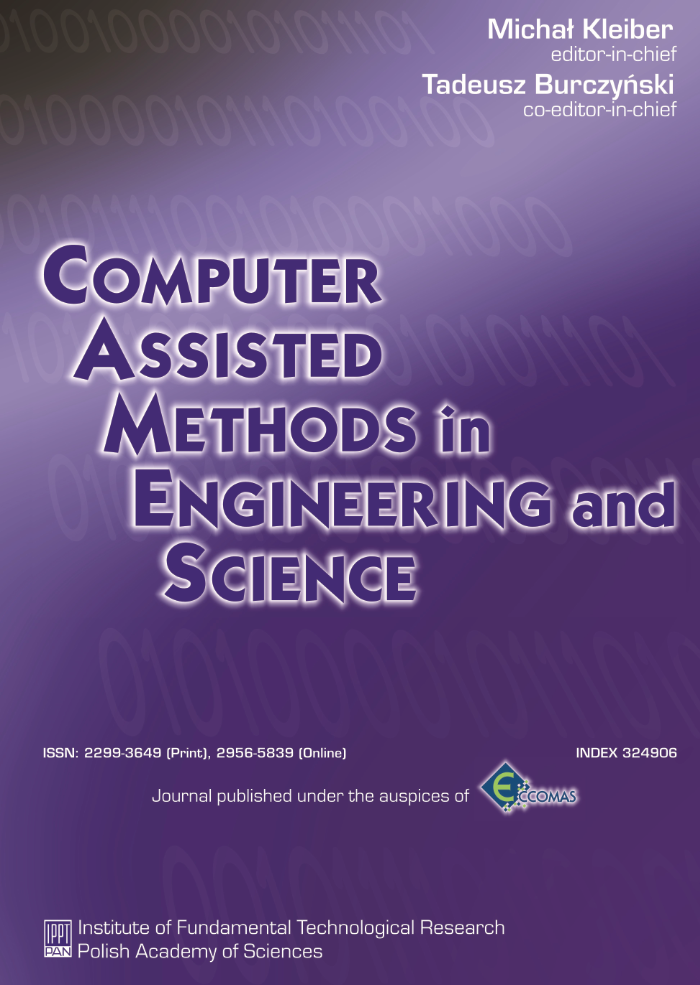Postprocessing and reliability evaluation of the one-dimensional numerical simulation results in mechanical problems
Abstract
This work addresses extended formulation of a new approach proposed to control numerical data error. It includes developing postprocessing techniques for the approximation of data given in a discrete form and estimation (evaluation) of this data a posteriori error and the reliability index. Theoretical consideration and numerical analysis are based on the adaptive meshless finite difference (MFDM) approach.
Keywords:
meshless FDM, experimental data approximation and smoothing, a posteriori error estimation of experimental data, adaptive methodsReferences
[2] J. Krok. An extended approach to error control in experimental and numerical data smoothing and evaluation using the meshless FDM. Revue Européenne des Eléments Finis, 7–8: 913–935, 2002.
[3] J. Krok, M. Stanuszek, J. Wojtas. A procedure for adaptive evaluation of numerical and experimental data. In: Proceedings of the 14th International Conference on Computational Methods and Experimental Measurements, 2009, Algarve, Portugal, WIT Transactions on Modelling and Simulation, 48: 25–36, 2009.
[4] J. Krok, J. Wojtas. An adaptive approach to experimental data collection based on a posteriori error estimation of data. In: Comp. Meth. in Mechanics – CMM-2007, June 2007, Spała–Łódz, Poland, pp. 1–13, 2007.
[5] J. Krok, J. Wojtas. Estimation of a posteriori errors and density of experimental and numerical data points. Technical Transactions, 104(1): 81–103, 2007.
[6] S.A. Łukasiewicz, M. Stanuszek, J.A. Czyż. Filtering of the experimental or FEM data in plane stress and strain fields. Experimental Mechanics, June 1993, pp. 139–147, 1993.
[7] S.A. Łukaszewicz, M. Stanuszek. Constrained, weighted, least square technique for correcting experimental data. In: 6th Int. Conf. on Comp. Methods and Experimental Measurements 93, Vol 2: Stress analysis, pp. 467–480, Elsevier Applied Science, London New York, 1993.
[8] J. Magiera. Non-statistical physically reasonable technique for a posteriori estimation of experimental data error. Computer Assisted Mechanics and Engineering Sciences, 13: 593–611, 2006.






